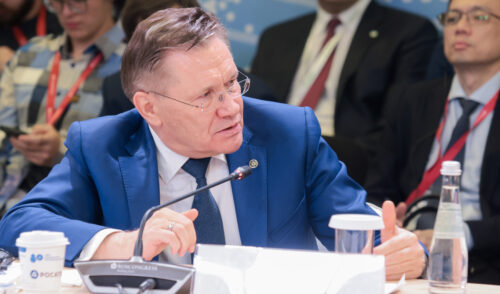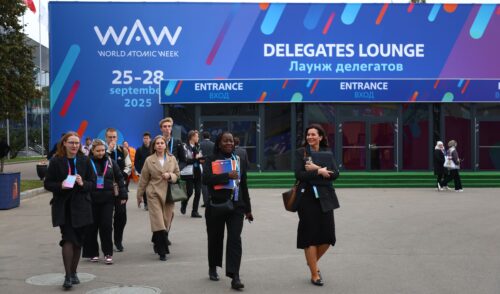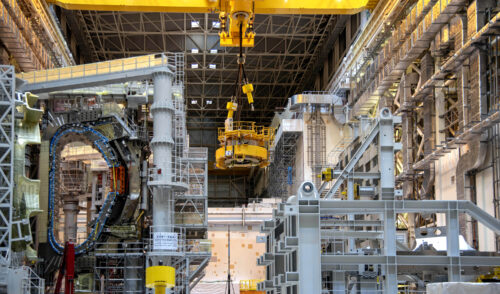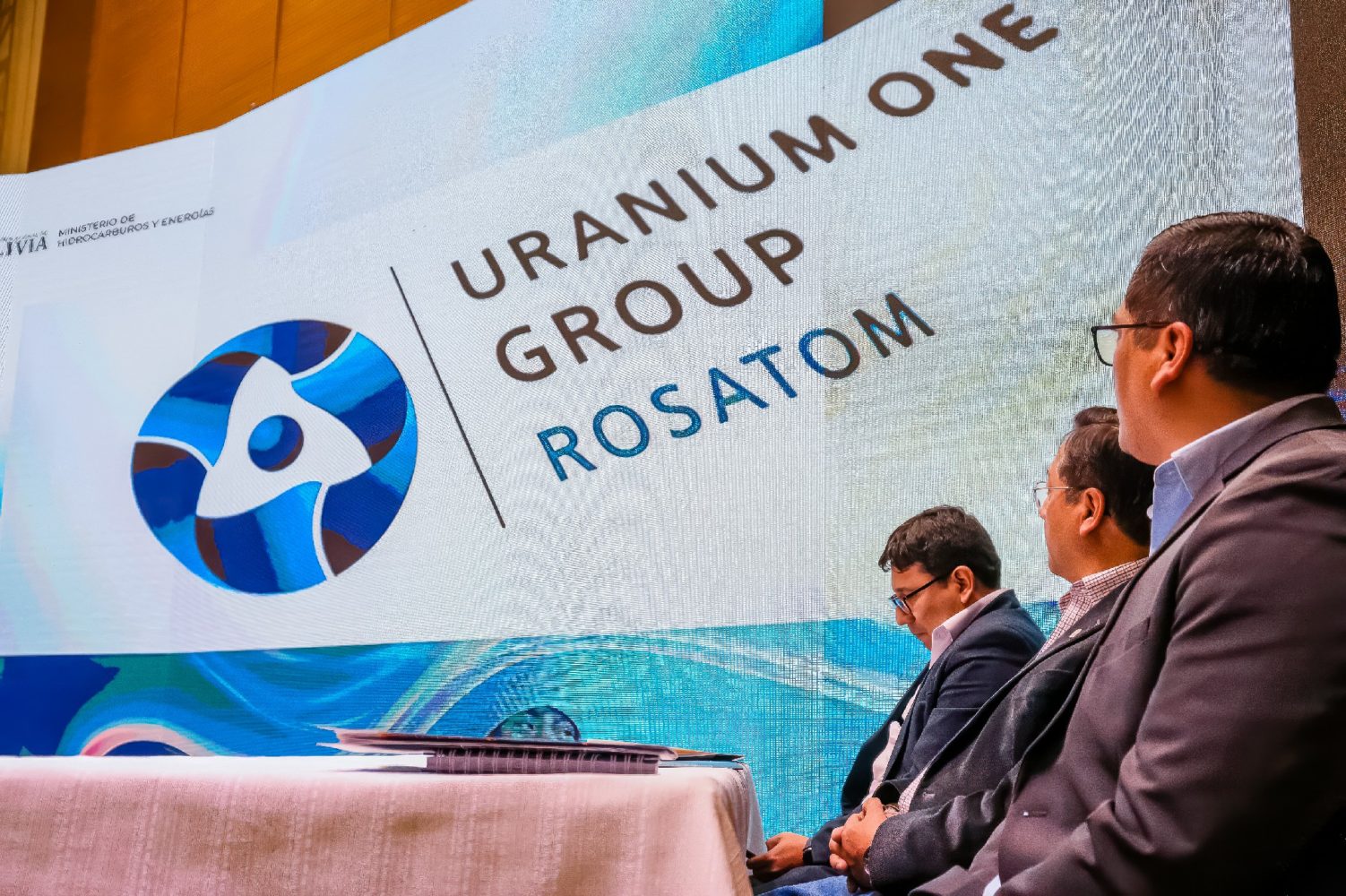
With Word and Deed
back to contentsRosatom has strong, long-standing ties with its Latin American partners. The Russian nuclear corporation supplies products to local customers, provides assistance in professional staff training, takes part in various thematic events, and is building an unparalleled center for nuclear research and technology in Bolivia.
Rosatom fosters young nuclear talents in Latin America. In late October of the anniversary year of the world’s first nuclear power plant, Rio de Janeiro hosted the Latin American Youth Nuclear Forum sponsored by Brazil’s Eletronuclear, Rosatom, the IAEA, and other organizations. Fifty young students and professionals from Brazil, Argentina, Colombia, Bolivia and El Salvador gathered at the site of the Brazilian National Nuclear Energy Commission (CNEN) to discuss the role of nuclear energy in the development of the region. They talked about the potential of nuclear science and technology in overcoming the challenges faced by their countries. The young people presented their vision of how energy transition could be staged in Latin America and emphasized that nuclear was a clean and sustainable energy source that would contribute to strengthening energy sovereignty and addressing climate change in the region. The forum participants agreed to promote nuclear technologies at every major global summit, including G20, COP30 and BRICS+.
Rosatom also took part in the Congress of the Mexican Nuclear Society (SNM) held in late October. This year’s congress is held in conjunction with a meeting of Women in Nuclear Global, an organization bringing together women employed in the nuclear industry from all over the world. Rosatom is supporting numerous initiatives aimed at maintaining gender balance in the industry. Over 3,000 female professionals are members of the Women in Nuclear community. Rosatom’s international collaboration in the field of gender balance covers more than 20 countries around the world, including countries in the Middle East, Central and Southeast Asia, and Africa.
All the best for Bolivia
Rosatom subsidiaries continue to supply key systems and components for the national Nuclear Research and Technology Center (NRTC) under construction in Bolivia’s El Alto. At the heart of the NRTC will be a research reactor, BRR 1. Once operational, it will produce radioisotopes for scientific research. They will be used in the neutron activation analysis to study the chemical composition of materials in a variety of applications. With this method, researchers analyze the composition of rocks, ores, concentrates and biological samples and develop programs for efficient use of natural resources and continuous monitoring of the environment. The reactor will also be used to train students specializing in nuclear technology.
The reactor pressure vessel was delivered from Russia and put in place in 2023. Late this October, Rosatom’s Novosibirsk Chemical Concentrates Plant manufactured nuclear fuel for the initial batch to be loaded into this reactor. The fuel is designed to remain operational during an earthquake with the maximum 8.7 point intensity on the MSK 64 scale. The first set of fuel assemblies is scheduled to be delivered to the country in 2025.
Construction of the first two facilities making up the NRTC was finished in 2023 when a cyclotron and a multipurpose irradiation center were put in operation. The cyclotron produces a wide range of isotopes, which are supplied to Bolivian medical clinics for cancer diagnostics. The irradiation center serves for the treatment of agricultural and food products to ensure their safety and longer shelf life. It can also be used to sterilize a variety of medical items.
Along with building the NRTC, Rosatom is helping Bolivia train professional staff to operate this innovative facility. This autumn, the Tomsk Polytechnic University (TPU, Russia) began training young specialists who will take up positions as operating personnel of the research reactor.
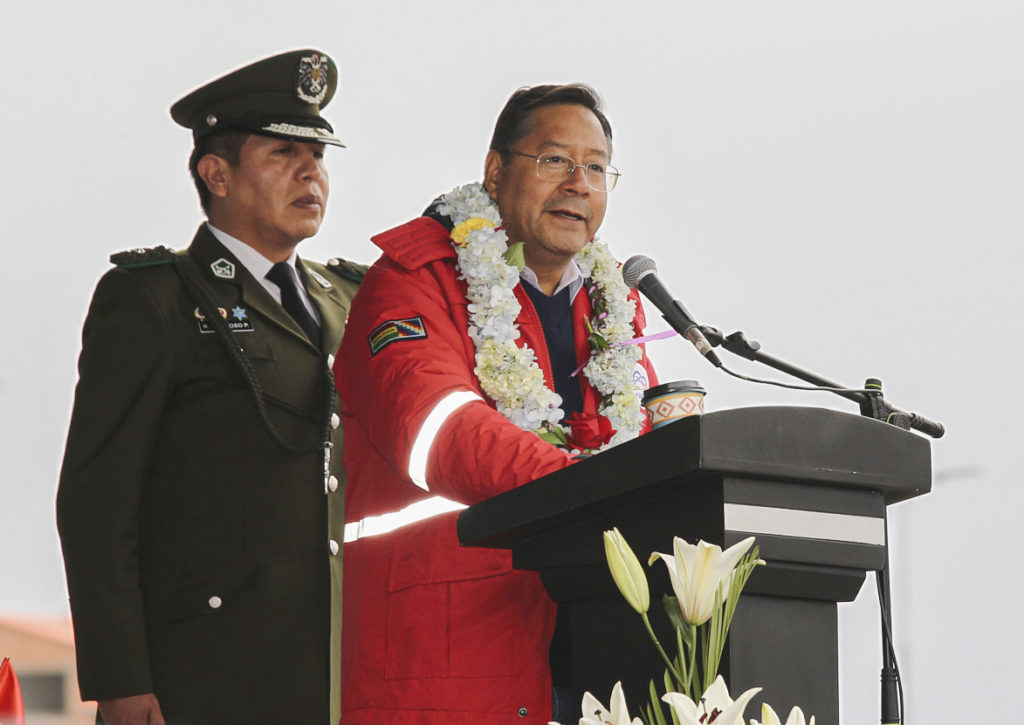 “We are moving decisively forward on the path to achieving our country’s technological sovereignty. A group of 18 Bolivian scholarship recipients are traveling to Russia to take a training course in the operation of nuclear research reactors. Their dedication and talent open before us a door to the future that will help develop and innovate Bolivia,” President Luis Arce wrote in his Telegram channel.
“We are moving decisively forward on the path to achieving our country’s technological sovereignty. A group of 18 Bolivian scholarship recipients are traveling to Russia to take a training course in the operation of nuclear research reactors. Their dedication and talent open before us a door to the future that will help develop and innovate Bolivia,” President Luis Arce wrote in his Telegram channel.
The training course consists of three modules. The theoretical and practical modules will be taught in Russia for eight months, with the TPU research reactor to be used for training practical skills. The final third module is scheduled to be taught in Bolivia for the students to learn how to operate the BRR 1 research reactor.
The Tomsk Polytechnic University has already trained Bolivian specialists, who are now employed at the NRTC and operate the multipurpose irradiation center and the pre-clinical radiopharmaceutical cyclotron facility. The Nuclear Research and Technology Center is therefore staffed with a highly qualified professional team.


